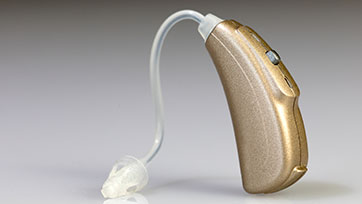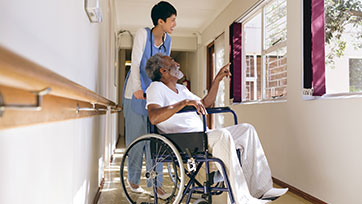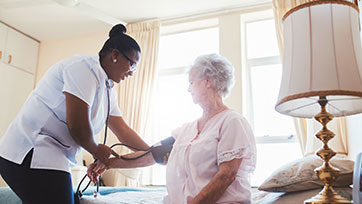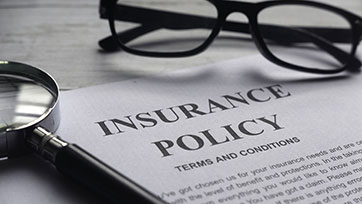This is a challenging time to grow old in America. Older adults face questions like, “How much am I going to have to pay for health care? What if I have to stop driving? If I need long-term care, what are my options? How can I avoid being a burden to my children, who have struggles and challenges of their own?” Fortunately, there are resources for older Americans (and their families) who are wrestling with those very questions. Scroll down to find useful information and assistance with transportation, nutrition, choosing the right Medicare plan, hearing care to caregiving – and more. Learn about the resources for coping and caring – not only for your aging family members, but for yourself as a caregiver.
 Caregiving
Caregiving
Chances are that you – or someone you know – are currently caring for an older family member. One in three Americans provides long-term care for elderly loved ones. Caregiving can be like an unpaid, full-time job — and a balancing act for caregivers raising children at the same time. It also can be physically, emotionally, and financially overwhelming. This section includes information to help you find resources for coping and caring.
 Dental Care
Dental Care
Good dental care is crucial to good health. But many seniors lack dental insurance and can’t afford dental care on their own. Traditional Medicare does not cover basic dental services, although some in Congress are trying to change that. Some Medicare Advantage plans do but may have other limitations and drawbacks. How can you access dental care even if you don’t currently have dental insurance? To get you started, check out the resources we’ve found.
 Hearing Care
Hearing Care
Approximately 30% of adults over age 65 have some degree of age-related hearing loss. Untreated hearing loss in older people can lead to earlier onset of dementia, balance problems and falls and social isolation. Unfortunately, traditional Medicare does not cover basic hearing care. This can leave many seniors unable to pay for a pair of hearing aids costing $1,000-5,000, or more. What options are available to help pay for essential hearing care?
 Long-Term Care
Long-Term Care
One in three Americans over 65 will need some type of long-term care as they age. Nursing home care can cost from $5,000 – 20,000 per month. Medicaid covers skilled nursing care for impoverished seniors. But there is no federal long-term care insurance for all seniors, and private plans are hard to find and afford. This section offers timely coverage of this issue from writers and policy experts around the country who are calling attention to the critical need.
 Medicaid
Medicaid
You may know Medicaid as a health insurance program for low-income Americans, but it helps middle class families, too. Did you know that Medicaid also covers skilled nursing care for millions of seniors? In fact, Medicaid pays for more than 40% of Americans’ long-term care services and supports. On this page, you can learn more about Medicaid coverage, eligibility, and the expansion of the program under the Affordable Care Act.
 Medicare
Medicare
If you are one of the more than 60 million Americans enrolled in Medicare, you know how crucial the program is for seniors’ health and well-being. Medicare is a complex program (with parts A, B, C, and D) and can sometimes be challenging to navigate. In this section, you’ll find helpful information on topics like enrollment, premiums, supplementary Medigap insurance, and choosing the right Medicare plan.
 Medicare Advantage
Medicare Advantage
You’ve probably seen television ads featuring celebrities like Joe Namath and Jimmy Walker promoting the Medicare Advantage (MA) program. This is a privatized version of Medicare run by for-profit health insurers. While MA can be a reasonable choice if you are a younger, healthier senior, it can be problematic for older patients with chronic or severe health issues. Learn about the differences between MA and traditional Medicare.
 Mobility/Transportation
Mobility/Transportation
Many seniors no longer drive or have access to a car. Others require special accommodations (such as wheelchair lifts) to get around. Many rely on public transportation. But an estimated 15 million seniors live in communities where public transit doesn’t meet their needs. You will find resources on this page for seniors in need of transportation, advice about older people and driving, and news about what’s being done on a national level to improve seniors’ mobility.
 Nutrition
Nutrition
Good nutrition is key to seniors’ health and well-being. The federal government funds programs under the Older Americans Act to provide seniors with hot, nutritious meals. Programs like Meals on Wheels not only furnish healthy food, but much-needed social interaction to seniors who may feel isolated. Find out what other nutrition support programs are available and what’s being done to improve the outlook for healthy eating in the older population.
 Petition
Petition
Add your name to the growing list of those who want Congress to add coverage for hearing services to traditional Medicare.
 Prescription Drugs
Prescription Drugs
If you’re among the 50% of Americans who take prescription drugs on a regular basis, you know that medications can be expensive. In fact, one in four Americans say they have trouble affording their prescription drugs. You may be covered under the Medicare Part D prescription drug program, but still face significant out-of-pocket costs. Find answers to some frequently asked questions about coverage — and saving money on prescription drugs.
 Reading Room
Reading Room
Stay on top of the news around the country to find out about the latest trends and opinions in aging.
 Vision Care
Vision Care
The risk of serious vision problems increases with age, especially for people over 65. But traditional Medicare does not cover basic vision care. (M.A. disclaimer here?) Vision care isn’t cheap. A routine vision exam costs $50-$300 or more, while prescription eyeglasses average about $300, and often cost considerably more. Many seniors living on fixed incomes cannot afford those costs. We are tracking down resources to help you obtain affordable vision care.
You’re Never Too Old to Improve Your Financial Literacy
During the month of April, advisers and experts from the financial, education and business sectors come together to help younger people understand how to successfully manage their personal finances.
National Financial Resource Directory
Patient Advocate Foundation helps patients know that they are not alone when dealing with healthcare needs. There are national and regional resources dedicated to improve access to quality care and decrease the financial burden of medical treatment, and we can help you locate them quickly and easily.
SHIP: State Health Insurance Assistance Program
FREE counseling & assistance with enrollment, coverage, claims and more
Federal and State Financial Assistance for Seniors
Federal and state governments offer financial assistance for housing, health care, transport, food and more. This resource identifies available trusted public federal and state organizations that offer public benefits.















